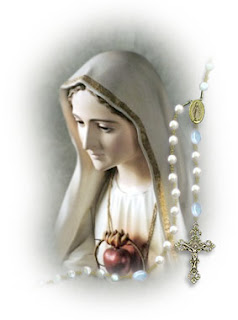One sometimes hears from Protestants, especially the more "charismatic" variety, that Catholics don't really worship God, because the Mass is too somber. Worship, they continue, is jubilent and "alive." Well, other than requiem Masses, all the parishioners I've seen have been alive. And if language be our guide, Catholics are the ones appropriately worshiping.
Below, I paste the content of an email on this subject.
-------------------------------------------------------------------
As I was walking up here, I recalled (non-factive) learning that "worship" was short for "WORTHship". The OED did not fully verify this, but the root word is "α. ME worþ". That last letter is an anglo-saxon character called the "thorn" and makes the "th" sound, so the root is "worth."
Here is the full def:
a. trans. To honour or revere as a supernatural being or power, or as a holy thing; to regard or approach with veneration; to adore with appropriate acts, rites, or ceremonies.
b. transf. To regard with extreme respect or devotion; to ‘adore’.
I think "to honor" is "to give honor to" which is basically appropriate value for.
And not that the acts, rites, and ceremonies are an outflow, as I indicated.
The entry for "adore" mostly refers to "to venerate" and "to reverence" but this one is nice.
To revere or honour very highly; to regard with the utmost respect and affection; to love deeply.
So, as per Catholic prediction, reverence seems to be the root notion. Here's the entry for "to reverence"
a. To greet (a person) with deep respect; to pay respect to (a person) by bowing, kneeling, etc.; to make obeisance to
b. To treat (a person) with respect, deference, or honour
To regard or treat with deep respect; to hold in high esteem as being of an exalted or superior kind.
And of course the more modern "revere" has essentially the same meaning.
To regard or treat with deep respect; to hold in high esteem as being of an exalted or superior kind.
And, finally, the more ecclesiastical term: "to venerate"
1. trans. To regard with feelings of respect and reverence; to look upon as something exalted, hallowed, or sacred; to reverence or revere.
I think this all comes together to support my account of valuation followed by appropriate feelings and actions.










